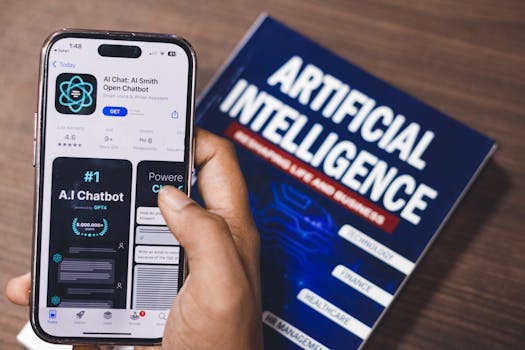
Emerging Trends in Artificial Intelligence and Machine Learning: What You Need to Know
Takeaways: Artificial Intelligence (AI) and Machine Learning (ML) are rapidly evolving fields that are driving innovation across various industries. Key trends include the rise of generative AI, increased focus on ethical AI, advancements in natural language processing, and the integration of AI with IoT devices. Understanding these trends is essential for businesses to remain competitive and for individuals to harness the potential of AI technologies.
As we move further into the digital age, Artificial Intelligence (AI) and Machine Learning (ML) continue to be at the forefront of technological innovation. These fields are not just buzzwords but are foundational elements that are reshaping industries, enhancing productivity, and driving new business models. In this article, we will explore the emerging trends in AI and ML, providing insights on what they mean for the future.
The Rise of Generative AI

Generative AI is finding applications in various sectors, including:
- Content Creation: Marketers are utilizing generative AI to produce blog posts, social media content, and even advertising copy, significantly reducing the time and effort required for content generation.
- Design and Art: Artists and designers are leveraging AI to create unique visual pieces, exploring new forms of expression that were not possible before.
- Entertainment: The entertainment industry is beginning to explore AI-generated scripts and music, opening the door to innovative storytelling techniques.
As generative AI continues to evolve, it raises important questions about copyright, authenticity, and the role of human creativity. Businesses that can effectively leverage generative AI stand to gain a competitive edge in their respective markets.
Increased Focus on Ethical AI

Key elements of ethical AI include:
- Bias Mitigation: Companies are investing in research to identify and reduce biases in their AI models, ensuring that their applications do not perpetuate discrimination.
- Transparency: There is a push for greater transparency in AI decision-making processes, which is essential for building trust with users and stakeholders.
- Accountability: Organizations are establishing frameworks to hold themselves accountable for the decisions made by their AI systems, which includes implementing oversight mechanisms.
As consumers become more aware of ethical considerations, businesses that prioritize ethical AI practices will likely enhance their brand reputation and customer loyalty.
Advancements in Natural Language Processing

Some notable advancements in NLP include:
- Conversational Agents: Chatbots and virtual assistants are becoming more sophisticated, capable of handling complex queries and providing personalized responses.
- Sentiment Analysis: Businesses are using NLP to analyze customer feedback and gauge public sentiment, allowing them to make data-driven decisions.
- Language Translation: Improved translation models are breaking down language barriers, enabling global communication and collaboration.
The ability of machines to comprehend and generate natural language opens up new opportunities for enhancing user experiences and improving operational efficiency in various sectors.
Integration of AI with IoT Devices

Key benefits of integrating AI with IoT include:
- Predictive Maintenance: AI algorithms can analyze data from IoT sensors to predict equipment failures before they occur, reducing downtime and maintenance costs.
- Smart Homes: AI-powered IoT devices are transforming homes into smart environments, enabling automation and enhancing energy efficiency.
- Healthcare Monitoring: Wearable devices equipped with AI capabilities can monitor patients’ health in real-time, providing critical data to healthcare providers.
As AI and IoT continue to converge, the potential for creating intelligent systems that enhance our daily lives is immense.






